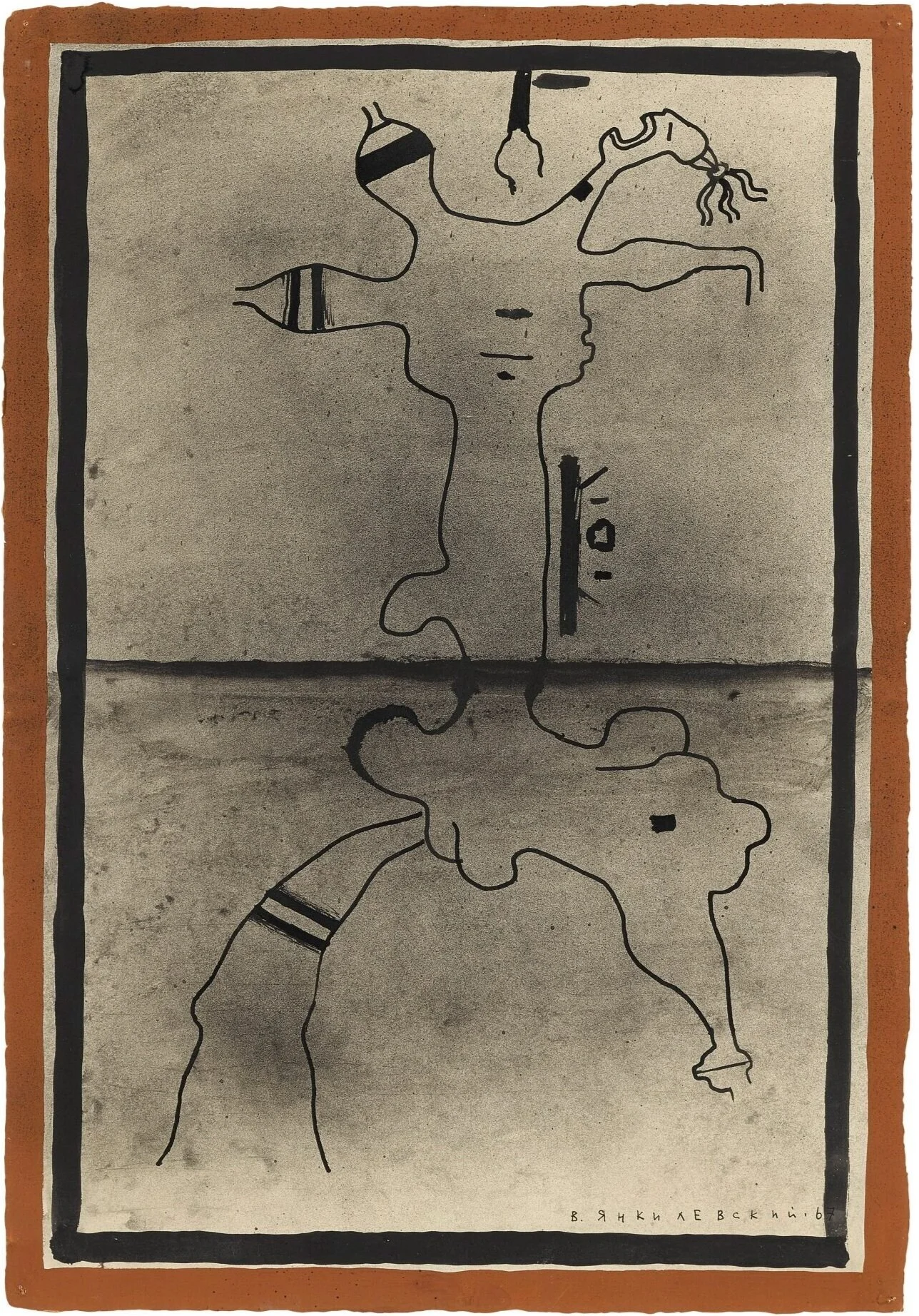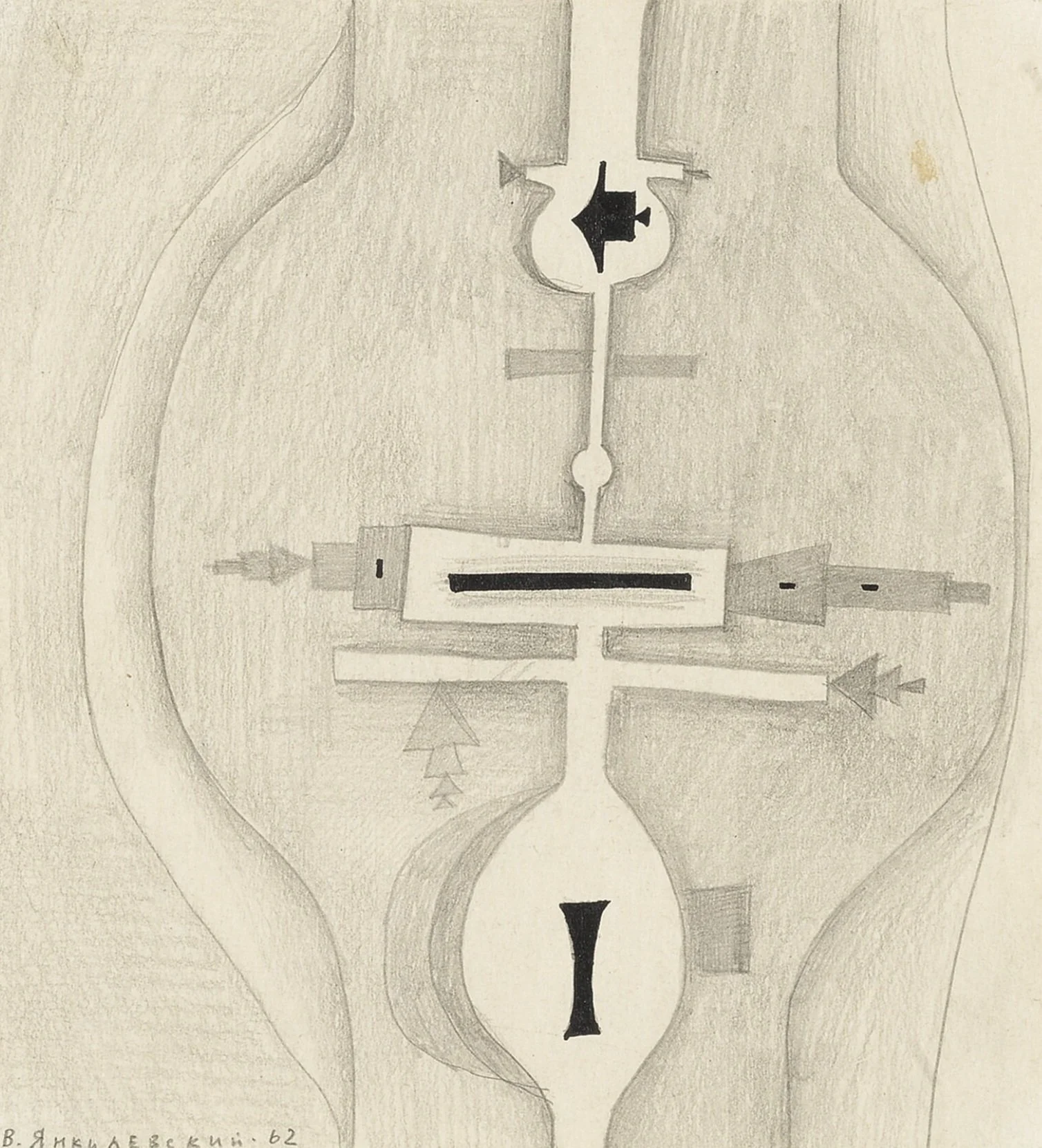Vladimir Yankilevsky (Russian, 1938-2018)
Biography
An important Russian artist and one of the key figures in Soviet Non-Conformist art, Vladimir Yankilevsky has a lasting legacy in the art of the late 20th century in Russia. His works today can be found in important museum collections both in Russia: Tretyakov Gallery (Moscow), State Russian Museum (St Petersburg), Pushkin Museum (Moscow); and abroad: Tate Modern (London), Centre Georges Pompidou (Paris), Museum Ludwig (Cologne & Budapest), National Gallery (Prague) and others. Most of his work is thought of in series, ranging from monumental works organised in triptychs to small drawings. He worked in various media, painting on cardboard and metal, mainly because he could not yet afford canvases when his works began to expand dramatically in scale. Yankilevsky said in an interview that he felt that God gave him a teacher when he was in need of guidance and also removed the teacher when he had fulfilled his purpose. This is in reference to his first teacher Ely Beliutin who taught Yankilevsky at the Polygraphic Institute for only one year before he was removed from the institution. Abstract composition often composed of recognisable figurative motifs, most often that of a man and a woman, form a large corpus of Yankilvsky’s work. His works are intricately layered and carefully composed to achieve a balanced chaos in his often surreal compositions. Nightmarish, confusing and disorienting, Yankilevsky’s work deals with the most pertinent question of the relationship between man and eternity. His recognisable style which finds so many different variations and develops quickly throughout his long artistic career solidifies Vladimir Yankilevsky as a key figure in the developments of unofficial art in the Soviet Union and the continued synthesis of Russian art in now a more international context in the post-Soviet period.
Related artists
Eduard Steinberg / Anatoly Zverev / Lydia Masterkova
Available works
Please see below the selection of available original artworks by Vladimir Yankilevsky.
Vladimir Yankilevsky, Untitled (from "Woman at sea" series), 1967. Ink, pastel, paper. 64 by 44 cm.
Vladimir Yankilevsky, Untitled, 1962. Ink, pastel, paper. 20 by 18,5 cm.
Vladimir Yankilevsky, Train 2 (from the "City" series), 1993. Pastel, gouache and coloured pencil on paper, 50 by 179.5 cm.




